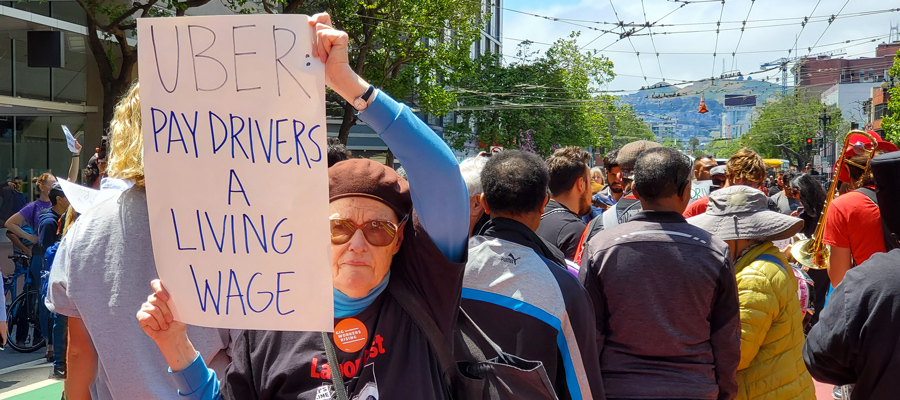The rise of the “gig economy” and on-demand work through digital platforms like Uber and Skip the Dishes has ignited the public debate about precarious work.
Despite their high-tech image, digital platform firms employ practices that are familiar from centuries of insecure work, including compensating workers on a per-task basis, offering no guarantee of continuing work, requiring them to provide tools and equipment and classifying them as ‘contractors’ not employees. This denies normal statutory protections like minimum wage, access to paid sick leave and workers’ compensation in the event of on-the-job injuries among other protections.
This business model allows platform companies to avoid normal employment expenses and responsibilities, to shift costs and risks (including those associated with fluctuations in business conditions) to their workers and thus artificially reduce their labour costs. In fact, many platforms derive their competitive edge from exploiting gaps in current employment regulations—not from genuine advantages in productivity or efficiency.
And, policymakers have been slow to respond.
It took months of public engagement for the BC government to learn what worker advocates have known for years—that some ride-hailing and food-delivery workers experience serious vulnerabilities due to a lack of basic workplace protections.
Instead of acting immediately on its election promise to extend essential workplace protections to vulnerable app-based workers, the BC government embarked on yet another public consultation by launching a discussion paper in August.
Stronger protections for app-based workers are urgently needed because for many of these people gig work is not a side job and many workers are new immigrants and people of colour. Denying them access to the full range of benefits and protections afforded other workers in our province is deeply unfair. It also goes against provincial government anti-racism commitments because it essentially creates a second class tier of (largely racialized) workers.
What’s also needed—but was missing from the government’s discussion paper—is to mandate platform companies to fulfill the same labour and fiscal responsibilities as traditional employers.
When global corporations like Uber, Lyft and Skip the Dishes are allowed to avoid paying employer health tax, WorkSafe, CPP and EI premiums, they are not contributing their fair share to support the services their workers will need when they get sick or injured and when they get older.
When injured app-based workers are not covered by WorkSafe, everyone else in BC pays for their medical care. And, when app-based workers with no EI protection suffer a loss of income because they are terminated without notice or can’t work due to illness or a disability, we can expect the need for provincial welfare and income support programs to increase. Plus, the ride-hailing business model of having drivers wait for fares at no cost to the employer generates congestion and pollution for everyone else.
Not only is this model unfair and costly for traditional employers and taxpayers footing the bill, but without policies to limit these practices the platform model will spread to more industries. This could threaten workers’ livelihoods, burden public health and income security programs and undermine businesses that shoulder standard employment costs and responsibilities.
In an open letter led by our office (CCPA-BC) and the Centre for Future Work, 61 leading experts in labour law, policy and economics highlighted five priority areas for regulating ride-share and delivery platforms:
- Establish a clear test to evaluate whether app-based workers are genuinely independent contractors or are, in effect, employees.
- Guarantee full coverage by minimum wage, notice for termination, WorkSafe and other normal employment standards where the test confirms that app-based workers are not genuinely independent businesses.
- Ensure any business entity engaging workers, including global platform corporations, accepts full legal responsibility for protecting worker health and safety.
- Apply all provincial payroll-based programs (in particular, WorkSafe and the Employer Health Tax) equally and fairly to platform companies and their workers.
- Confirm that app-based workers have full rights to organize unions, negotiate collectively with their platform companies and take collective action in support of their demands.
Our submission to the government’s public consultation will reiterate these five core priorities.
The BC government has a unique opportunity to set high standards for sustainable, responsible platform-based work. We can be sure that global platform corporations are lobbying intensely against stronger regulations as they have done in other jurisdictions that have acted to better protect app-based workers. We expect our government to support BC workers, not multinational corporations.
With a year left until the next provincial election, the time to act is now.
If you would like to participate in the BC government’s consultation on extending employment protections to app-based workers, you can find more information about the process here.
The deadline for submissions was September 30, 2023.



